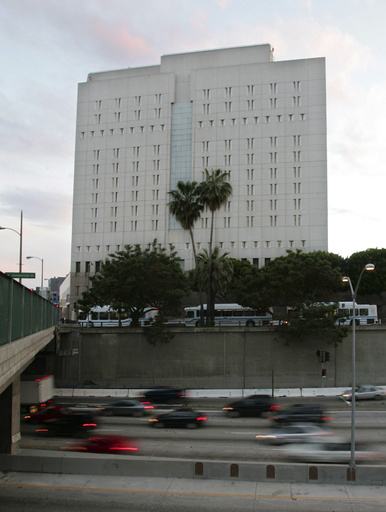
NEW YORK — The administration of former President Donald Trump has resumed the practice of detaining certain individuals in federal prisons as part of its immigration enforcement efforts. The federal Bureau of Prisons confirmed this on Friday, noting its role in aiding U.S. Immigration and Customs Enforcement (ICE) by providing housing for immigration detainees, thus supporting the government’s immigration policies.
However, the Bureau of Prisons did not disclose how many detainees it is currently holding or which specific facilities are being utilized for this purpose. The agency asserted that it cannot comment on the legal status of individuals or the specific populations assigned to particular facilities for reasons of privacy and security.
Three unnamed sources familiar with the situation indicated that federal jails in Los Angeles and Miami, along with a federal prison in Atlanta, are involved in this immigration detention strategy. These sources requested anonymity to discuss information not permitted for public release.
The increase in immigration detainees could exacerbate the already critical issues facing federal prisons, which have been reported to struggle with severe understaffing, violence, and other challenges. The Bureau of Prisons, being the largest unit of the Justice Department, employs over 30,000 staff across 122 facilities housing approximately 155,000 inmates, all within an $8 billion annual budget. In December, the agency announced the closure of one prison and the indefinite suspension of six prison camps, driven by pressing challenges such as staffing shortages and dilapidating infrastructure.
An inquiry for comment was sent to ICE, although there has been no response at this time. Trump has previously committed to deporting millions of the estimated 11.7 million people undocumented in the United States, yet ICE currently operates with the budgetary capacity for detaining only around 41,000 individuals. The administration has not specified the necessary number of detention beds to fulfill its objectives.
Typically, immigrants are processed through ICE’s facilities, which include privately run detention centers and local jails under contract. Recently, Secretary of Homeland Security Kristi Noem announced that a second flight of detainees arrived at Guantanamo Bay Naval Base in Cuba. In response, immigrant rights organizations have called for access to individuals detained there, labeling the facility a “legal black hole.”
White House Press Secretary Karoline Leavitt reported that since Trump took office on January 20, over 8,000 arrests have been executed during immigration enforcement operations. Of those apprehended, 461 individuals were released for various reasons, including medical issues and insufficient detention capacity.
During a specific period from January 23 to January 31, ICE recorded an average of 787 arrests daily, a marked increase compared to an average of 311 daily during the prior 12 months under the Biden administration. Moreover, ICE has ceased the publication of daily arrest figures.
Back in 2018, during Trump’s initial term, the Bureau of Prisons reached an agreement with ICE and Customs and Border Protection to detain as many as 1,600 immigrants in federal prison facilities across several states including Arizona, California, and Texas.
This arrangement has faced legal challenges, including a lawsuit filed by six detained immigrants at a medium-security prison in Victorville, California. They claimed to have faced “punitive and inhumane” treatment, alleging that the Bureau of Prisons served inedible food, denied adequate religious practice, limited recreational activities, and provided insufficient medical care.
In October, the American Civil Liberties Union (ACLU) initiated a Freedom of Information Act suit against the Bureau of Prisons and immigration authorities for records associated with the detention of immigrants in federal prisons during Trump’s first term. A conference related to this case is set for February 28.
Simultaneously, an investigation has brought to light serious concerns within the Bureau of Prisons, indicating systemic issues such as misconduct, sexual abuse by employees, frequent escapes, and ongoing violence, compounded by inadequate staffing which hampers emergency responses.
Last week, El Salvador’s President Nayib Bukele proposed to house U.S. immigration detainees, along with American prisoners, in his country’s extensive CECOT prison. He stated on social media that he was offering the United States the chance to outsource part of its prison operations in exchange for a “relatively low” fee. Trump expressed that he was open to this idea, although he acknowledged potential legal complications surrounding it.
“If we had a legal right to do it, I would do it in a heartbeat,” Trump commented to reporters in the Oval Office, while indicating that they were currently assessing this possibility.

